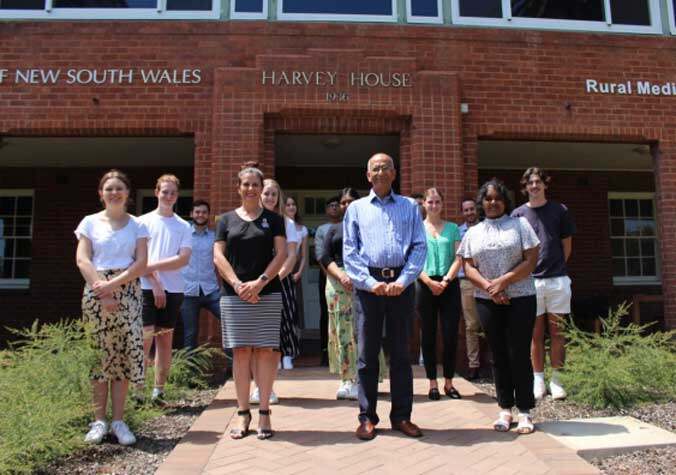UNSW has partnered with Murrumbidgee Local Health District to provide a coordinated pathway for doctors wanting to become rural generalists.


An innovative collaboration between UNSW Sydney and the Murrumbidgee Local Health District (MLHD) to address the shortage of general practitioners in regional NSW has won the Premier’s Award for highest quality healthcare.
The Murrumbidgee – or Single Employer – Model (SEM) program aims to attract, train, retain, and support rural generalist doctors who work in the local health district. This four-year pilot project with the Australian government began in 2021.
The pathway, developed in collaboration with the UNSW Regional Training Hub, provides a rural workforce model where general practitioner (GP) trainees receive support and certainty during their training. The Single Employer Model is a five-year contract with transition between hospital and GP training placements, making rural general practice a more attractive option for doctors.
Associate Dean of Rural Health Professor Tara Mackenzie, who is Head of the School of Clinical Medicine (Rural) at UNSW Medicine & Health said this initiative was important in supporting young doctors to stay local after completing their medical studies.
“This program is ensuring that rural communities are receiving the right skills in the right place,” Prof. Mackenzie said.
“With this focus on the community, the trainees are more likely to stay local, as during those five years, they can become a part of their community.”
The Single Employer Model is a joint initiative by the UNSW Murrumbidgee Regional Training Hub and the MLHD. This program, developed by Associate Professor Paul Mara in collaboration with UNSW staff, Hub staff and the MLHD, provides a coordinated pathway for doctors wanting to become rural generalists.
“I am delighted that the Murrumbidgee Rural Generalist Training Pathway has been recognised in the 2023 Premier’s Awards,” MLHD Chief Executive Jill Ludford said.
“The hard work and dedication of MLHD’s staff in helping to develop and implement this innovative program are helping to change the face of rural health care.”
UNSW Professor Adrienne Torda, Interim Dean of Medicine & Health, said this Premier’s Award for Highest Quality Healthcare was a major win for UNSW, the training of rural doctors and our rural communities.
“The Single Employer Model is an acclaimed and innovative program and joint partnership between Murrumbidgee Local Health District and UNSW, transforming the landscape for the support of and training of junior doctors in regional communities and is now being modelled widely across Australia,” Prof. Torda said.
Expanding the Single Employer Model state-wide
Following its success, the pathway has now been expanded to 80 places across NSW, focused on supporting GP trainees to develop the advanced rural generalist skills needed to support rural hospitals.
After being trialled successfully in the MLHD, the SEM is being expanded throughout regional NSW. From 2024, the NSW government is receiving funding from the Commonwealth government to support up to 80 rural generalist trainees per year across the state.
“The Murrumbidgee Model not only sets a new direction for our state, but for the entire country. We have pioneered in transforming rural generalist training in our nation,” said Dr Alam Yoosuff, Director Primary Care, Murrumbidgee Local Health District.
Murrumbidgee rural GP training
The SEM provides a tailored, coordinated pathway for doctors wanting to become rural GPs and continuous employment with a single employer for up to four years, with placements in GP practices and rural hospitals within the one region. The SEM was first trialled in the Murrumbidgee region.
Throughout the four-year period, trainee rotate through placements in the Murrumbidgee area, dependent on the skills a trainee wants to specialise in. The UNSW Rural Clinical Campus in Wagga Wagga plays an important role in identifying, nurturing, and mentoring candidates.
The program gives trainees certainty about location, income and working conditions such as work hours and on-call obligations. It assists with relocation, finding suitable supervision, negotiating contracts and concerns about work and leave entitlements, allowing junior doctors to focus on their training and providing care to the patients.
Read more about the Single Employer Model.



































